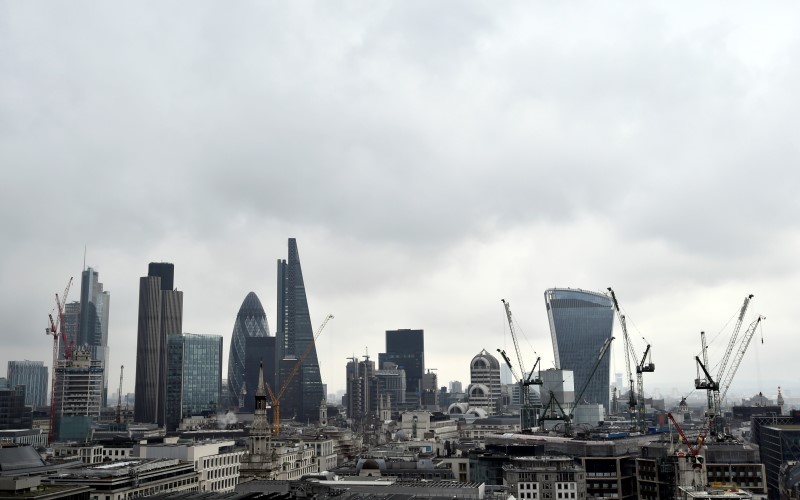By David Milliken
LONDON, April 5 (Reuters) - Britain's economy appears to have slowed since the start of this year as worries about the global economy, government spending cuts and a vote on staying in the European Union take their toll, a closely watched survey showed on Tuesday.
Financial data company Markit said its Purchasing Managers Index for services recovered only slightly last month after reaching its lowest in nearly three years in February.
Official data last week showed Britain's economy did slightly better than thought at the end of 2015, but the Markit figures, which economists use as a guide to future official numbers, suggest 2016 got off to a weak start.
Combined with sub-par readings for manufacturing and construction, Markit said its service PMI pointed to a fall in quarterly economic growth in the first three months of 2016 to 0.4 percent, from 0.6 percent in the final three months of 2015.
Britain's economy grew 2.3 percent last year. Government forecasters expect growth to slow to 2.0 percent in 2016.
"Business confidence remains in the doldrums as concerns about the global economy continue to be exacerbated by ... issues such as Brexit and the prospect of further government spending cuts announced in the Budget," said Markit's chief economist, Chris Williamson.
Britain will hold a referendum on whether to leave the EU on June 23. A poll of businesses on Monday showed the possibility of a vote in favour of leaving is causing companies to put investment plans on hold (Full Story).
Weaker growth forecasts left finance minister George Osborne hunting for savings in last month's budget (Full Story).
The Markit/CIPS services PMI - which covers the private-sector services that make up about 40 percent of Britain's economy - rose to 53.7 in March from February's near three-year low of 52.7, in line with economists' expectations.

Monday's construction PMI and Friday's survey of manufacturers were lacklustre, too. The combined index for the three measures inched up to 53.7 in March from 52.9.
Services generated new business at the slowest rate since January 2013, and the readings for hiring and business expectations were among the weakest in the past three years.
"Growth is more likely to weaken further in the second quarter," Williamson said.